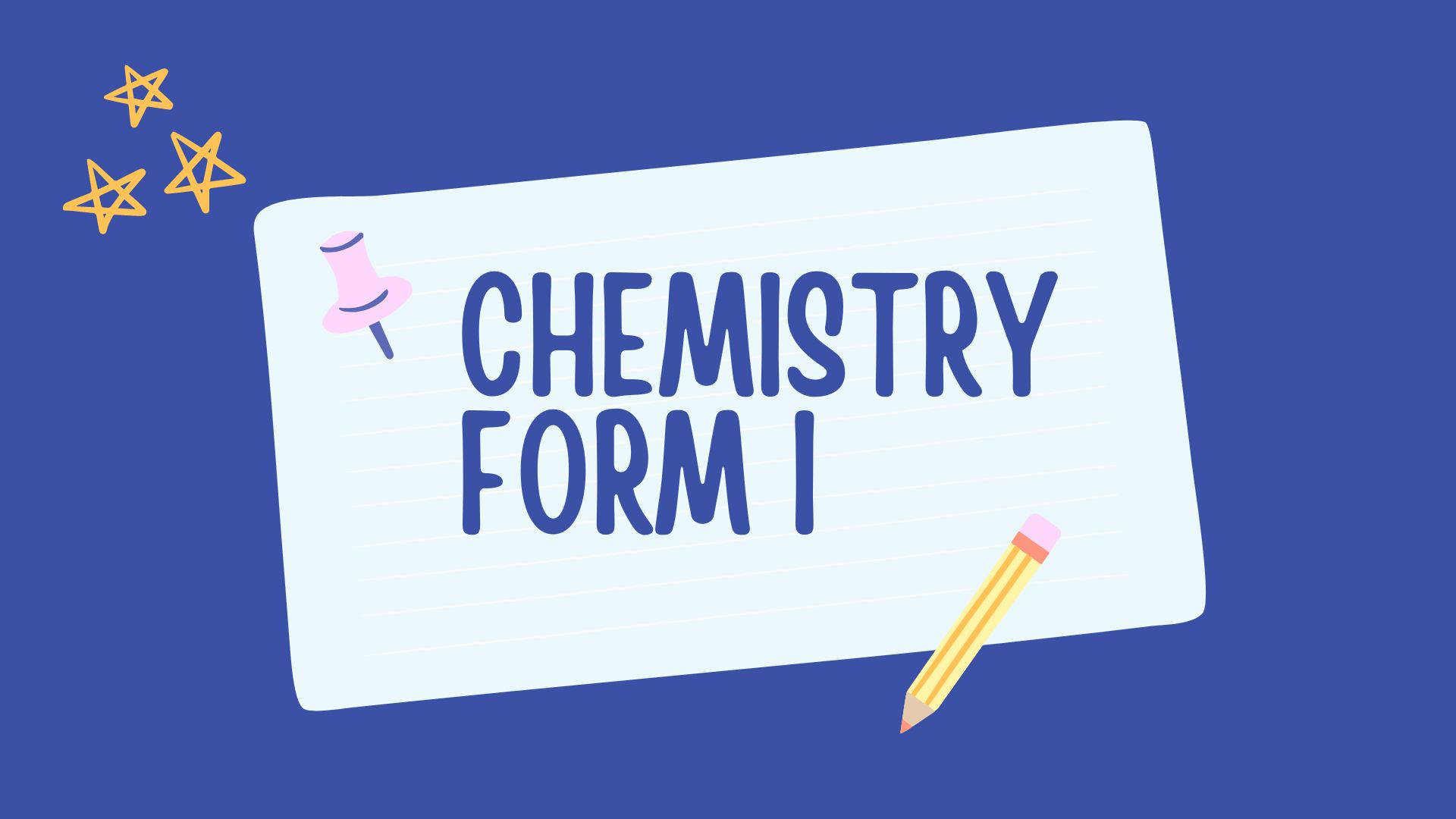Upon successful completion of Chemistry Form One, students can expect to achieve several outcomes:
-
Foundational Understanding: Students will develop a foundational understanding of key chemistry concepts, including atomic structure, chemical bonding, and the behavior of matter.
-
Problem-Solving Skills: Through solving chemical problems and completing laboratory experiments, students will enhance their analytical and problem-solving skills.
-
Critical Thinking: Students will develop critical thinking skills by evaluating experimental data, analyzing chemical phenomena, and drawing evidence-based conclusions.
-
Experimental Competence: Students will gain hands-on experience in conducting laboratory experiments, including proper use of laboratory equipment, safety procedures, and data interpretation.
-
Communication Skills: Students will improve their ability to communicate scientific ideas and findings effectively, both orally and in writing, using appropriate scientific language and terminology.
-
Mathematical Proficiency: Students will strengthen their mathematical skills through calculations involving stoichiometry, molarity, and other mathematical concepts related to chemistry.
-
Scientific Inquiry: Students will cultivate an appreciation for the scientific method and inquiry-based learning as they explore chemical principles through experimentation and investigation.
-
Safety Awareness: Students will develop an understanding of laboratory safety protocols and demonstrate responsible behavior in the laboratory environment.
-
Interest in Chemistry: By engaging with hands-on activities, demonstrations, and real-world applications, students will develop a greater interest in chemistry and its relevance to everyday life.
-
Preparation for Further Study: Successful completion of Chemistry Form One will provide students with a solid foundation for further study in chemistry and related scientific disciplines.
These outcomes will equip students with essential skills and knowledge that are valuable not only for academic success but also for future careers in science, technology, engineering, and mathematics (STEM) fields.
To excel in Chemistry Form One, students should meet the following requirements:
-
Basic Science Knowledge: Students should have a foundational understanding of basic science concepts learned in primary school, including the properties of matter, the scientific method, and basic laboratory skills.
-
Mathematical Proficiency: A basic understanding of mathematical concepts such as addition, subtraction, multiplication, and division is essential for performing calculations in chemistry, including stoichiometry and molar calculations.
-
Reading Comprehension: Proficiency in reading and comprehending scientific texts, instructions, and laboratory procedures is crucial for understanding chemistry concepts and conducting experiments effectively.
-
Critical Thinking Skills: Students should possess critical thinking skills to analyze and interpret scientific data, draw conclusions, and solve problems encountered in chemistry.
-
Curiosity and Interest: A genuine curiosity and interest in the subject of chemistry will motivate students to engage actively in learning, ask questions, and explore chemical phenomena.
-
Attention to Detail: Chemistry often involves precise measurements, observations, and procedures. Students should demonstrate attention to detail to ensure accuracy and reliability in laboratory experiments and calculations.
-
Time Management: Effective time management skills are essential for completing assignments, studying for assessments, and conducting laboratory experiments within allocated timeframes.
-
Collaborative Skills: Chemistry often involves group work, laboratory partnerships, and cooperative learning activities. Students should be able to work collaboratively with peers, communicate effectively, and contribute positively to group discussions and projects.
-
Safety Awareness: Understanding and following safety protocols and procedures in the laboratory are paramount to prevent accidents and ensure the well-being of oneself and others.
By meeting these requirements, students can establish a solid foundation for success in Chemistry Form One and lay the groundwork for further study and exploration in the field of chemistry.
Welcome to Chemistry Form One, where students embark on an exciting journey into the world of atoms, molecules, and chemical reactions. This course serves as an introduction to the fundamental principles and theories of chemistry, equipping students with essential knowledge and skills to explore the composition, properties, and behavior of matter.
Key Topics Covered in Chemistry Form One:
-
Introduction to Chemistry:
- Understanding the scope and importance of chemistry in everyday life and various scientific disciplines.
- Introduction to basic laboratory safety practices and techniques.
-
Atomic Structure:
- Exploration of the structure of atoms, including protons, neutrons, and electrons.
- Introduction to the periodic table and the organization of elements based on atomic number and properties.
-
Chemical Bonding:
- Investigation of different types of chemical bonds, such as ionic, covalent, and metallic bonds.
- Understanding how atoms combine to form molecules and compounds.
-
States of Matter:
- Examination of the three states of matter - solid, liquid, and gas - and the factors influencing phase changes.
- Introduction to concepts like density, solubility, and diffusion.
-
Chemical Reactions:
- Exploration of the principles of chemical reactions, including types of reactions such as synthesis, decomposition, and combustion.
- Introduction to balancing chemical equations and stoichiometry.
-
Acids and Bases:
- Study of the properties and behavior of acids and bases, including pH scale and indicators.
- Introduction to common acids and bases and their uses in daily life.
-
Introduction to Organic Chemistry:
- Basic understanding of organic compounds, including hydrocarbons, alcohols, and carboxylic acids.
- Introduction to the structure and naming of organic molecules.
Chemistry Form One aims to foster curiosity, critical thinking, and analytical skills among students as they explore the principles of chemistry. Through hands-on experiments, demonstrations, and classroom discussions, students will develop a deeper appreciation for the role of chemistry in shaping the world around them.
Join us as we unravel the mysteries of matter and delve into the fascinating realm of chemistry in Chemistry Form One.
